D-Day for Democrats in Iowa
The Iowa Democratic caucus has huge political significance far beyond the state: it will shape the race to take on Donald Trump. The fight is still too close to call.
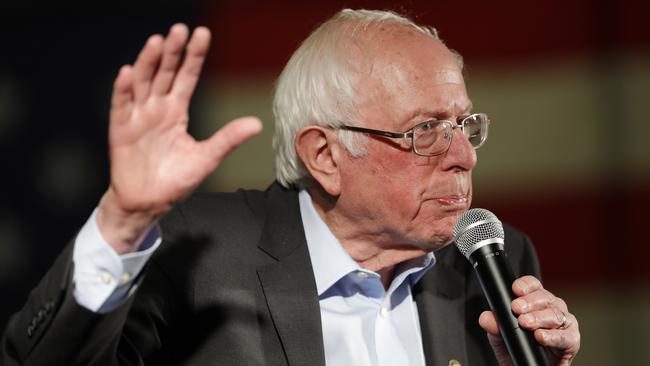
It is minus 13C and snow blankets the ground outside the Dallas Centre-Grimes High School in Des Moines, Iowa. When Elizabeth Warren makes her entrance the 300 people waiting inside burst into cheers. The 70-year-old presidential candidate runs into the room, swoops up the microphone and speaks.
“Let me tell you a bit about myself, about why I’m in this race, and then we will go to that most important part of democracy … selfies,” she says, as the crowd laughs.
Watching on with her four young children, housewife Rebecca McMahon says she will vote for Warren in next week’s Iowa caucus because she has the boldest plans to remake America. The vote will kick off the Democratic presidential primary race.
“I really like her promise of Medicare for all,” she says, referring to Warren’s sweeping promise to introduce America’s first universal health care plan. “We are one of the few countries that don’t have it and she has the vision to implement it.”
On the stage, Warren is in full flight, railing against corporate greed, a corrupt Washington and Donald Trump. “When you see a government that works great for those with money and not so great for everyone else, that’s corruption pure and simple, and we need to call it out for what it is,” she says to more cheers.
Across the Iowa capital on this day, Democratic presidential hopefuls are everywhere, turning up at block parties, schools, halls, shops and town halls, frantically campaigning as the days count down to the crucial February 3 vote. The Iowa Democratic caucus has a political significance far beyond the size of this sparsely populated rural midwest state. As the first of the US states to vote on who should win the Democratic presidential nomination to take on Donald Trump, the outcome in Iowa will shape the race.
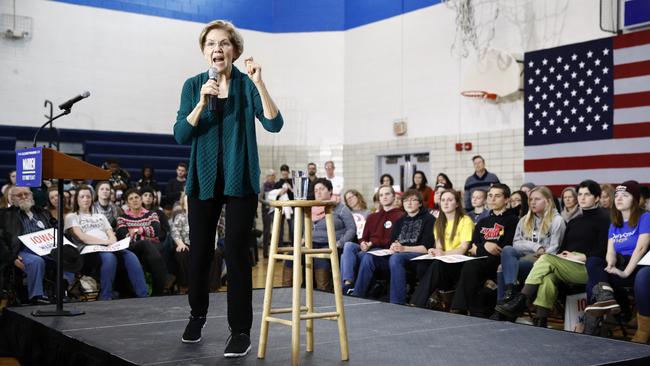
Seven of the last nine Democratic nominees have won the Iowa caucus, including Hillary Clinton in 2016 and Barack Obama in 2008. Those candidates who don’t finish in the top four in Iowa usually drop out of the contest. This means the 12-person field of Democrats (which has already halved from the initial 24-person field) is likely at least to halve again after Iowa.
But this year the race for Iowa is almost impossible to predict. The latest polls of registered Democrats, according to the RealClear Politics average of polls, show a tight four-way tussle in the state between former vice-president Joe Biden (21 per cent), senators Bernie Sanders (17.3 per cent) and Warren (16.7 per cent) and former South Bend, Indiana, mayor Pete Buttigieg at 16.3 per cent.
Each of these top four candidates has led polls in Iowa at some point during the past three months. The only plausible outsider appears to be Minnesota senator Amy Klobuchar, who is rising in the polls but is still a long way behind with 8.3 per cent.
“I have met Amy Klobuchar and I liked her,” says Jan Hutchison, a retired schoolteacher as she walks her two grandchildren in downtown Des Moines.
“I knows she’s not a frontrunner but she’s from the midwest, she is honest, she’s been in the congress and she is more moderate than some of the others.”
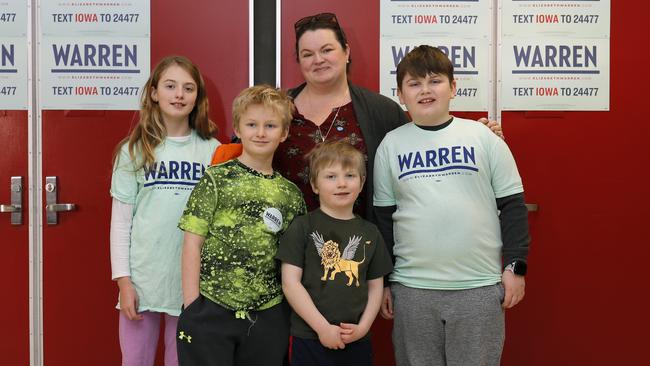
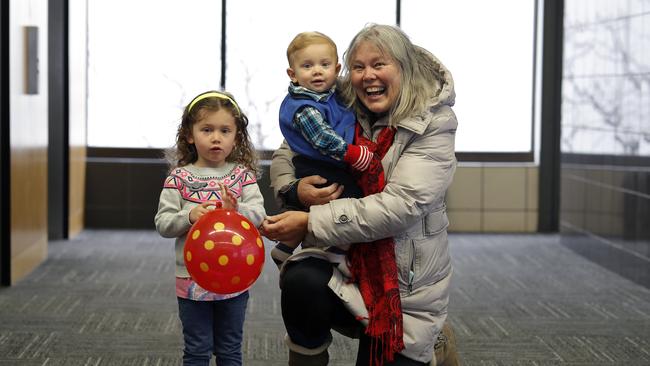
Hutchison says she doubts Klobuchar will win Iowa or the nomination but she believes whoever does will go on to be president: “I can’t imagine Trump would be re-elected. It is very irritating to listen to all his chaos.
“Apart from Amy, the next person I like is Pete Buttigieg — I want youth and it’s very hard to find in this field.”
Klobuchar is 59, but she is youthful compared with Warren, Biden, 77, and 78-year-old Sanders, who had a heart attack late last year. Taking advantage of this older field is the youngest candidate, Buttigieg, who at 38 would also be the youngest president. With a more moderate platform than the left-wing Warren and Sanders, Buttigieg portrays himself as the candidate of generational change.
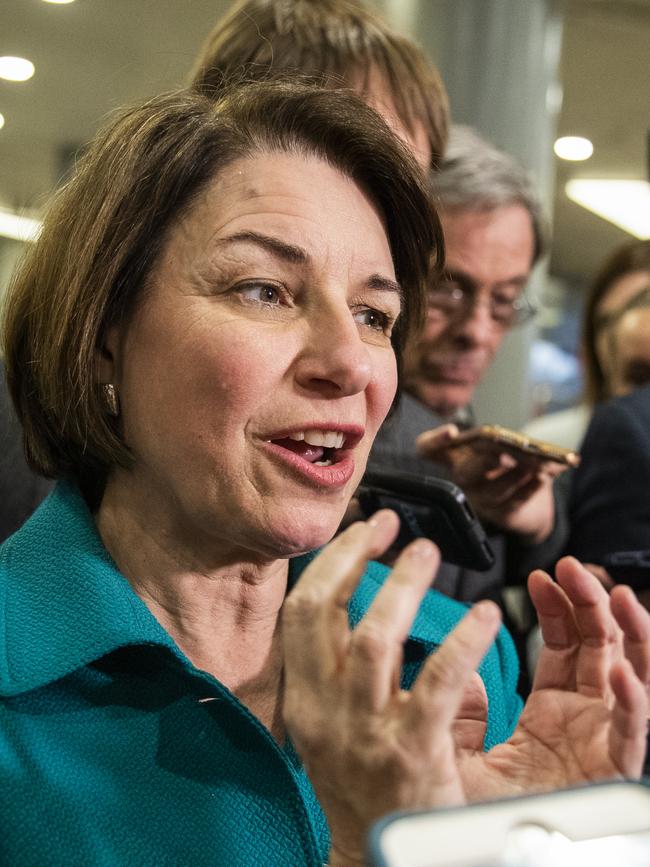
The highly articulate, openly gay Rhodes scholar and military veteran has seen his rapid rise in the polls stall in recent weeks amid scrutiny of his record with African-Americans while mayor of South Bend.
Across town from Warren, Buttigieg is being aggressively questioned on stage by interviewers at the Brown & Black Forum, which asks candidates about their policies towards minorities.
He is accused of halving the number of black police officers under his watch as South Bend mayor and refusing to meet black officers to discuss “systemic racism” in the force. Polling at only 2 per cent nationally among African-Americans, he bristles at the question and denies the allegation.
“I met with them all the time,” he responds sharply.
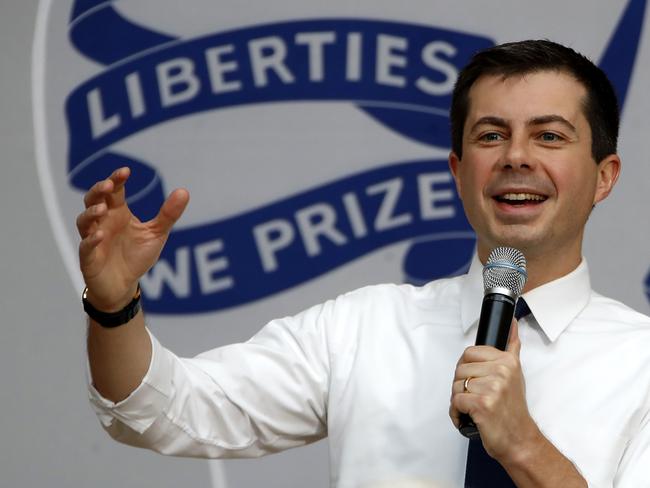
Although polling strongly in Iowa, a mostly white state, Buttigieg has little support in states such as South Carolina, which has a large percentage of black voters. Biden is the frontrunner in states with large black populations.
Inside the forum Will Sims, an African-American who runs a non-profit group in Des Moines, says he will vote for Biden and that he doesn’t care for Buttigieg.
“I won’t vote for Buttigieg because I don’t think he has a strong background in African-American and social justice issues,” says Sims, who worked for the campaign of Californian senator Kamala Harris until she dropped out of the race.
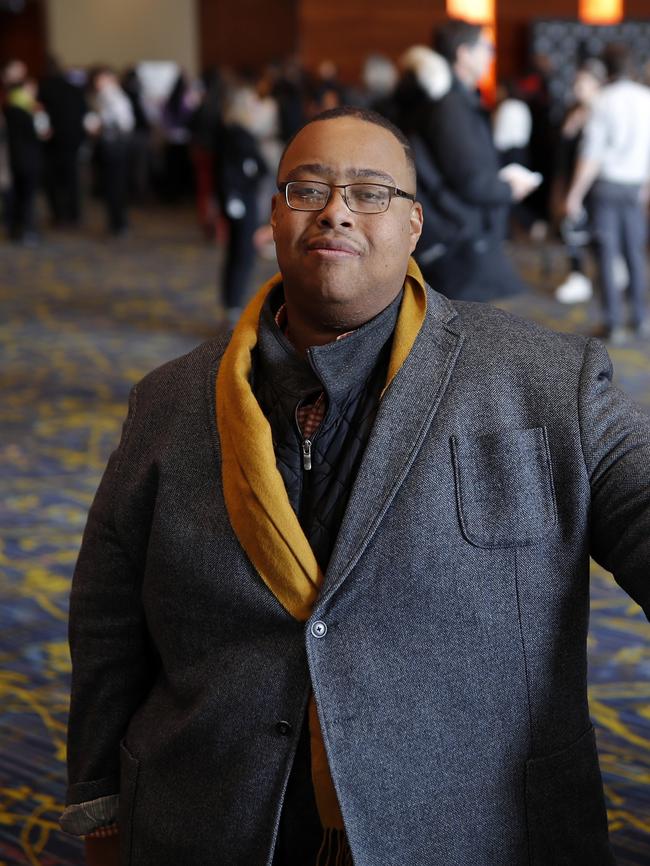
“Biden has been strong on African-American issues for all of his career. He has a record of getting things done, a record of getting legislation passed, he can work with the other side, he has a strong background on foreign policy and defence issues, he has got experience, and he can go in there and hit the ground running,” says Sims.
“Biden is also a more pragmatic candidate; he’s not going to promise things he can’t deliver. A lot of the other candidates are promising things that will never see the light of day.”
Sitting nearby is Agnes Warutere, who has lived in Iowa since moving in 2008 from her native Kenya. “I became a citizen a few months ago so I could vote against Trump,” says the 41-year-old lawyer and mother of two.
“Trump has mobilised people into racism. He is making American white males hate other races, especially Mexicans and South American Hispanics.”
She plans to vote in the caucus for Sanders because “he is trying to make things better for everyone, not just the rich”.
At the Iowa history museum in Des Moines a large crowd is chanting “Bernie, Bernie” as their hero walks on stage for a rally. It has been a bad 24 hours for Sanders, even though he is still performing well in the polls.
Clinton has just given an interview in which she says of Sanders: “Nobody likes him, nobody wants to work with him, he got nothing done, he was a career politician. It’s all just baloney and I feel so bad that people got sucked into it.”
That morning The New York Times, in an editorial, endorsed Warren and Klobuchar for the nomination but threw a punch at Sanders: “He boasts that compromise is anathema to him. Only his prescriptions can be the right ones, even though most are overly rigid. We see little advantage to exchanging one over-promising, divisive figure in Washington for another.”
Tom Harvey does not agree and he waves his Bernie sign towards the grey-haired candidate. A 71-year-old Vietnam War veteran and former Republican voter, Harvey says Sanders’s far-left agenda of Medicare for all and massive wealth distribution is precisely the sort of revolutionary plan America needs: “Bernie has the best chance to defeat Donald Trump. His message is ‘we the people’, not ‘we the rich’.”
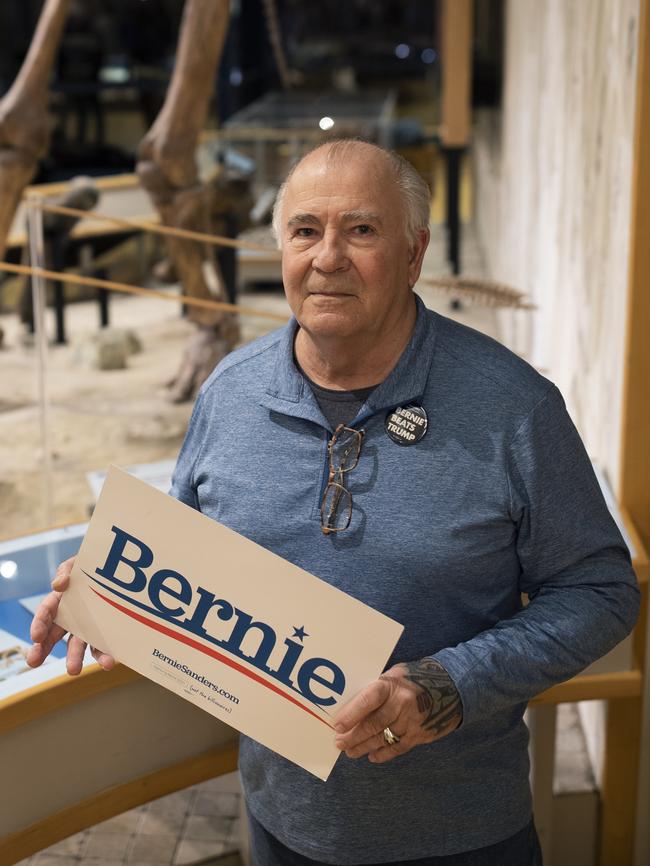
Many Democratic voters in Iowa are torn about whether to support candidates whose policies they like best or candidates they think have the best chance of beating Trump.
Alison Rosa, a 48-year-old Des Moines lawyer and grandmother of three, says the Democratic candidate should not be based only on who can beat Trump.
“I don’t think that people should vote for someone just because they have the best chance of defeating Donald Trump. They should just choose the best person with the best policies,” she says.
Rosa is one of 40 per cent of Iowa Democrats who have not made up their minds. She says Sanders and Warren are too far left, Biden is yesterday’s man and she is leaning towards Klobuchar.
Polls in Iowa show most Democrats see Biden as the best chance to defeat Trump. The former vice-president has revived his campaign after stumbling initially when a series of gaffes and flat performances in early debates raised concerns about his age and led to predictions his frontrunner status would quickly fade.
Although he has regained the lead in Iowa, he has a poor record there, receiving less than 1 per cent of the Iowa caucus vote when he ran for president in 2008. But his recent “No Malarkey” bus tour of Iowa helped his standing and he has based his campaign on the claim he is the candidate most likely to beat Trump.
Biden supporters in Iowa say they fear that if Warren or Sanders win the party’s nomination their big-spending liberal agendas would be rejected by conservative midwest voters who Democrats must win over to be competitive in November. Even some Warren supporters wonder how her plans, which include universal health and childcare, the scrapping of college fees and a wealth tax, would be received by those moderate voters who abandoned the Democrats in 2016 and voted for Trump.
“I am going to vote for Elizabeth Warren,” says retired schoolteacher Debbie Snyder as she listens to Warren speak.
“She is probably a bit too liberal for the midwest but there are lots of areas of the country that will support her. I am a little hesitant how she’s going to fund her plans but I’m going to give her a try.”
Carrie Hall, a small businesswoman, says she thinks Biden is the person America needs in a post-Trump era: “My favourite at this point is Biden because of his experience in international affairs. He is the man we need right now because we really need to mend our relations with our allies and the world after Trump.”
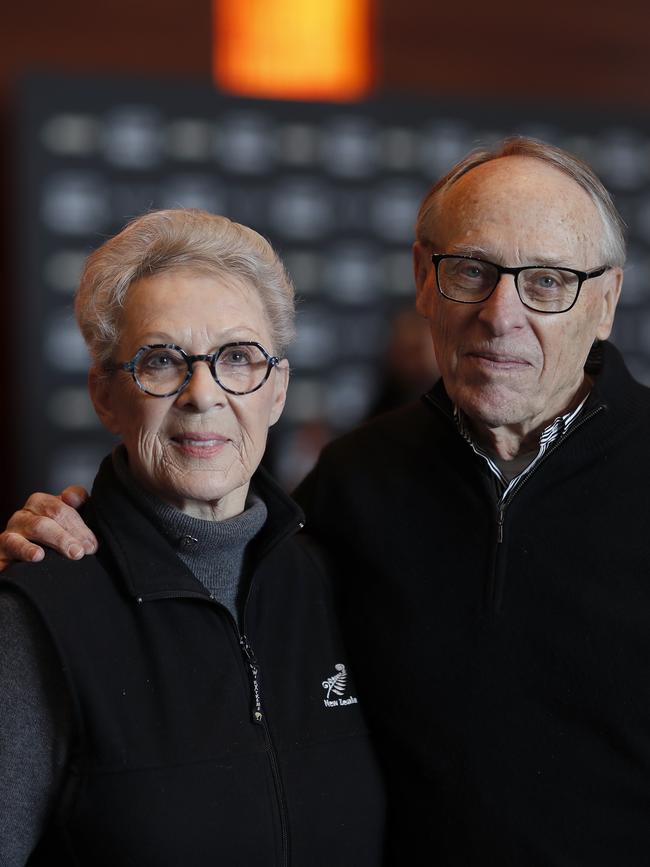
Her husband, Joe Hall, a retired doctor, says he normally votes Republican but he dislikes Trump so much he has registered as a Democrat and will support Biden because he believes he stands the best chance of defeating Trump.
While the frontrunners in the Iowa race fill up large venues, the longshot candidates hold sparsely attended meetings.
In a suburb of Des Moines, entrepreneur Andrew Yang, who is polling only 3.7 per cent in Iowa, is talking to about 50 people in a room, daring them to imagine he might one day be president.
Yang has something of a small cult following because of his universal basic income plan to give $1000 a month to every American over the age of 18.
“Can you imagine the headlines, ‘Andrew Yang wins Iowa’,” he tells his audience.
“It will be like ‘what just happened, that guy who wants to give us all money just won Iowa’. And then it will be ‘wait a minute — I kind of like that idea. I like him’. Then we go all the way and then I am in the White House.”
Ted Craig, a lawyer and father of two, is thinking of voting for another outsider, billionaire Tom Steyer, even though he is polling only 4 per cent.
“At this stage in the caucus I think it’s more important for me to go for a candidate who most aligns with my views but when we get to the general election the No 1 goal is to beat Trump,” he says.
“So I’d be comfortable supporting Steyer initially but then get off that horse if he won’t make it.”
The Iowa race has been shaken up this week by the start of the President’s Senate impeachment trial, which is now keeping three of the five frontrunners — Warren, Sanders and Klobuchar — in Washington rather than campaigning in Iowa.
Biden and Buttigieg are planning campaign blitzes through Iowa next week to capitalise on the absence of their chief rivals.
“I will not be able to be back here in Iowa as much as I would like,” Sanders tells his supporters at the history museum rally before flying back to Washington the next morning for the trial.
With less than 10 days left before the vote, Iowa remains too close for any candidate to be confident of victory.
“I really hope they choose Elizabeth Warren,” says supporter and mother of four McMahon.
“But the most important thing for Democrats is that we choose someone, whoever it is, who will beat Donald Trump.’’
Cameron Stewart is also US contributor for Sky News Australia.


To join the conversation, please log in. Don't have an account? Register
Join the conversation, you are commenting as Logout